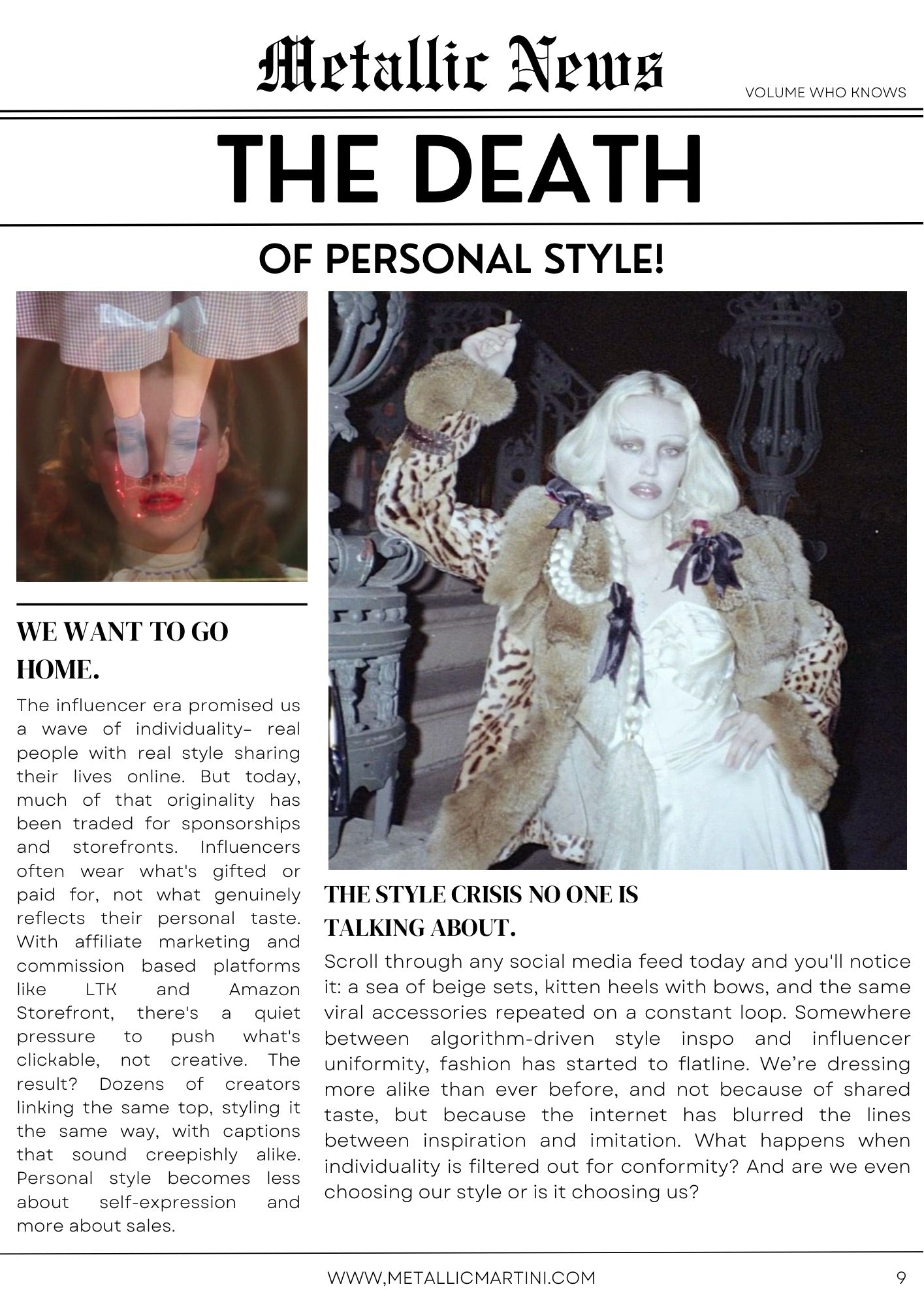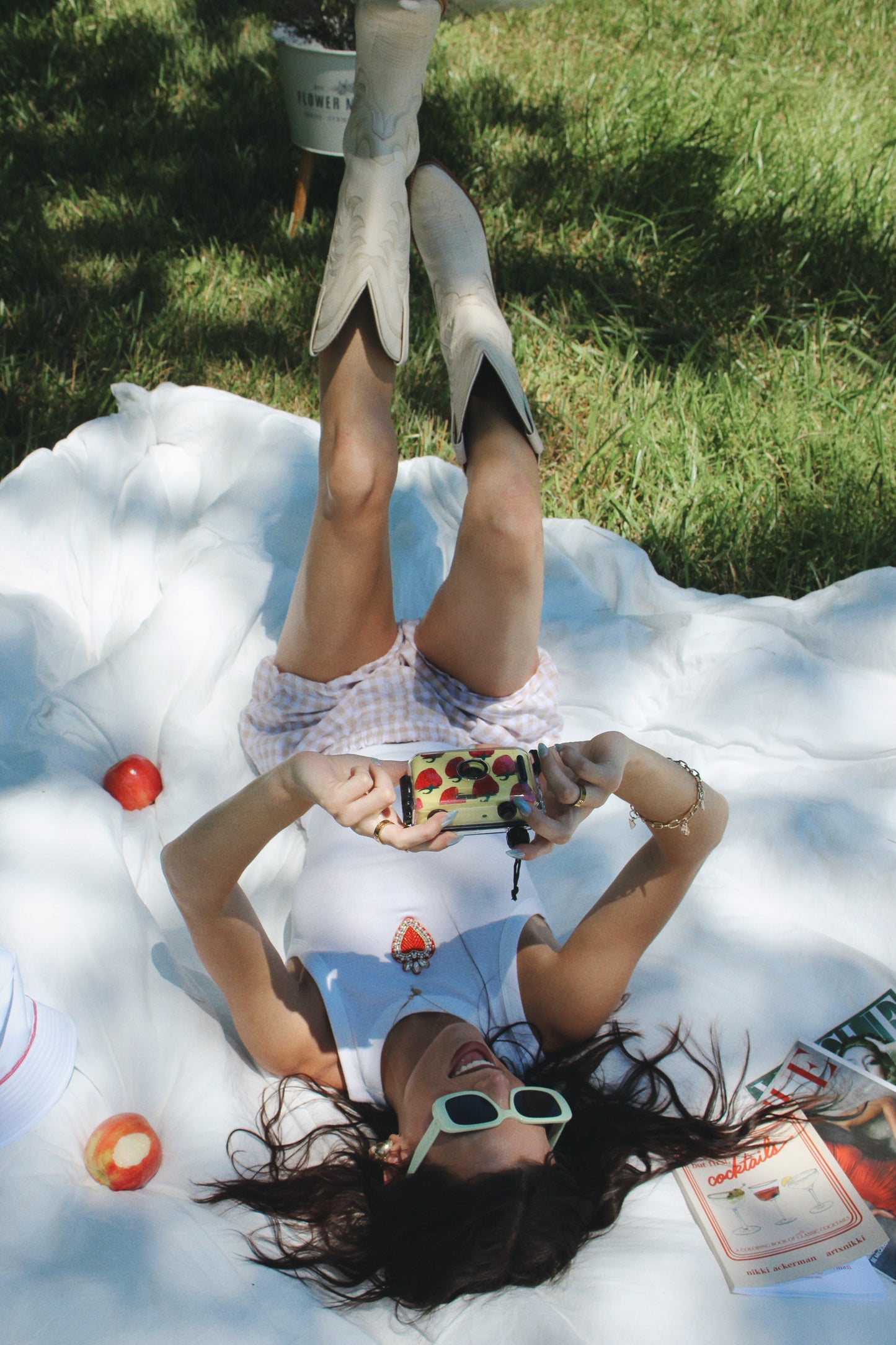
Mia Holton
The Death of Personal Style: The Style Crisis No One Talks About
Scroll through any social media feed today and you'll notice it: a sea of beige sets, kitten heels with bows, and the same viral accessories repeated on a constant loop. Somewhere between algorithm-driven style inspo and influencer uniformity, fashion has started to flatline. We’re dressing more alike than ever before, and not because of shared taste, but because the internet has blurred the lines between inspiration and imitation. What happens when individuality is filtered out for conformity? And are we even choosing our style or is it choosing us?

The influencer era promised us a wave of individuality– real people with real style sharing their lives online. But today, much of that originality has been traded for sponsorships and storefronts. Influencers often wear what's gifted or paid for, not what genuinely reflects their personal taste. With affiliate marketing and commission-based platforms like LTK and Amazon Storefront, there's a quiet pressure to push what's clickable, not creative. The result? Dozens of creators linking the same top, styling it the same way, with captions that sound creepily alike. Personal style becomes less about self-expression and more about sales.
At the root of our alikeness is something deeply human: the instinct to mirror those we admire. Known as “mirroring” behavior, it's our natural tendency to copy expressions, mannerisms, and even style cues from people we look up to– it helps us feel connected and accepted. On social media, this instinct is dialed up to the extreme. Every like, save, and comment gives us a dopamine hit, subtly training us to repeat whatever gets the most approval. If one outfit goes viral, you'll see it replicated endlessly, not because it's everyone's favorite look, but because it's been socially valued. Overtime, we've stopped dressing for ourselves and dressing for the algorithm.

The constant cycle of mirroring and validation doesn't just shape our closets– it blurs our vision of the sense of self. When personal style becomes a performance for likes, we start outsourcing our identity to a screen. The dopamine-driven loop of posting, comparing, and adjusting warps our inner compass, making it harder to know what we genuinely like versus what we've been conditioned to want. Over time, this can lead to decision fatigue, low self-esteem, and a quiet, creeping disconnection from our authentic selves. Instead of fashion being a source of creativity and joy, it becomes another metric of worth– curated not for self-expression but for social survival.

Reclaiming your personal style starts with tuning out the noise and tuning into yourself. It means pausing before clicking “add to cart” and asking: Do I actually like this or do I just see it everywhere? It's about wearing the same pair of beat-up boots you've loved for years, even if they're not trending, or layering jewelry the way your teenage self would have. Personal style isn't about being unique for the hell of it, it’s about just being honest. When you start dressing from instinct instead of influence, you build a wardrobe that reflects your story– not the algorithms. And in a world weirdly obsessed with sameness, that's pretty bold.



